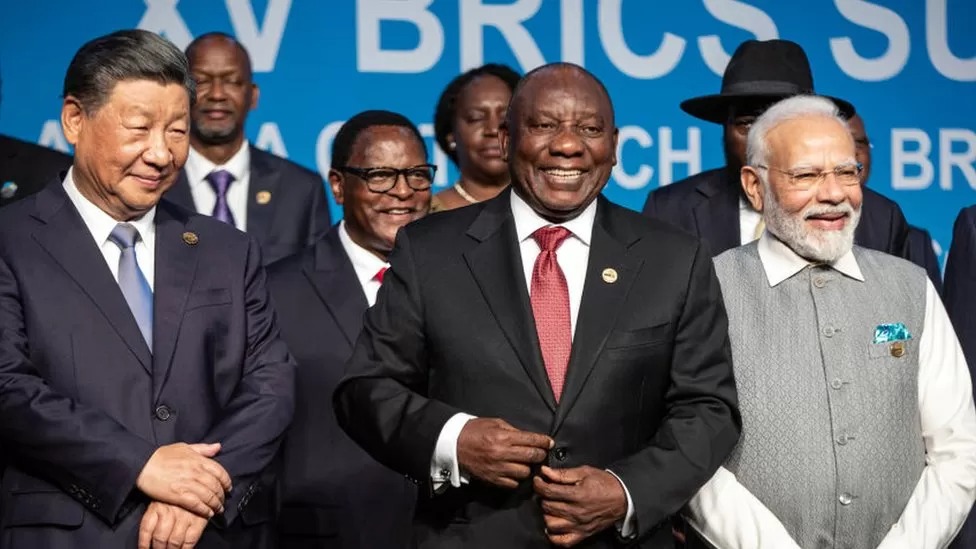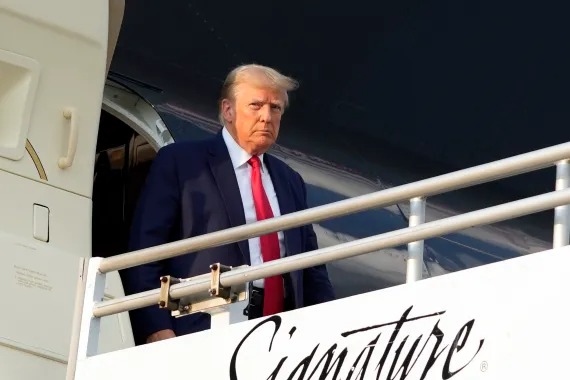The recent announcement of the expansion of the Brics club, comprising Brazil, Russia, India, China, and South Africa, has ignited intense speculation about the emergence of a new global power bloc poised to challenge the dominance of the United States. The Brics summit, hosted in Johannesburg, South Africa, witnessed a significant development as six new countries – Argentina, Egypt, Iran, Ethiopia, Saudi Arabia, and the United Arab Emirates – are set to join the alliance, further reshaping the international geopolitical landscape.
China’s Push for a Counterweight
China, a driving force behind the expansion, has positioned the Brics alliance as an alternative to the Western-led world order. While the Brics members seemingly lack commonalities on the surface, Chinese President Xi Jinping has strategically emphasized shared aspirations for a future free from Western dominance. The expansion, lauded as “historic” by President Xi, envisions strengthening the collective power of Brics countries to foster world peace and development on their terms.
Diverse Unity: Balancing Interests
Although the expansion of the Brics alliance showcases a united front against Western hegemony, the diversity of the member nations raises questions about their shared goals. According to Steve Tsang, director of London’s Soas China Institute, the underlying theme is the desire to create an alternative world order, offering autocratic regimes a safe space for development without conforming to Western conditionalities. This unity in diversity serves as the foundation for a new geopolitical dynamic.
Challenges and Considerations
The announcement of the expansion, made by South African President Cyril Ramaphosa, wasn’t without challenges. Disagreements surfaced over the number and pace of new entrants. Rumors and abrupt cancellations of press conferences fueled speculation. The surprise addition of a sixth country exemplified the complexity of the deliberations. Late-night discussions and delayed announcements underscored the deliberative nature of the process, culminating in the unanticipated expansion.
Rivalry and Recognition
Russian President Vladimir Putin’s virtual presence at the summit, due to concerns over potential arrest related to alleged war crimes, further escalated tensions between the Brics bloc and Western powers. Putin’s remarks, criticizing Western “neo-liberalism” and its threat to traditional values, indirectly targeted the United States. While the US was absent from the meeting, its influence and global leadership were recurrently referenced.
US Response and Implications
The expansion of Brics has prompted reactions from the United States. White House National Security Advisor Jake Sullivan downplayed the bloc’s potential as a geopolitical rival, citing divergent views among Brics nations. Sarang Shidore, director of the Global South program at the Quincy Institute in Washington, noted that none of the new members are staunchly anti-American. This highlights the diverse nature of the expanded alliance and its potential to complement rather than replace existing global structures.
Shifting Norms and Complementarity
As the Brics alliance expands, a notable shift in global dynamics becomes evident. The expansion marks a departure from a world where the US dictates norms and institutions. While not an outright replacement, this shift towards complementarity signifies a growing multipolar world order. The expanded Brics alliance challenges the notion of a unipolar world led by the United States and indicates a more balanced distribution of power.
Amidst the debates, cancellations, and last-minute additions, the Brics summit showcased the delicate diplomatic tapestry woven by diverse nations with varying interests. The summit did not yield clear winners or losers. Instead, it reinforced the notion of a changing global order, where unity in diversity is paramount. China’s pursuit of an alternative world order, Russia’s critiques of Western influence, and the United States’ measured response collectively underscore the evolving dynamics of international relations. As the Brics bloc expands, the world watches intently to discern the emergence of a genuine rival to US leadership or a complementary force shaping a new global equilibrium.
















